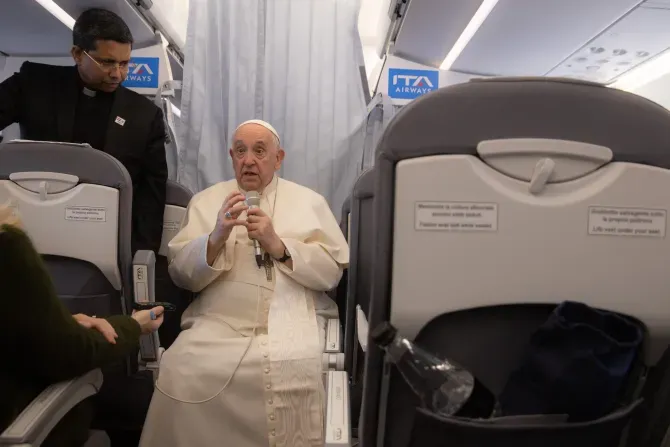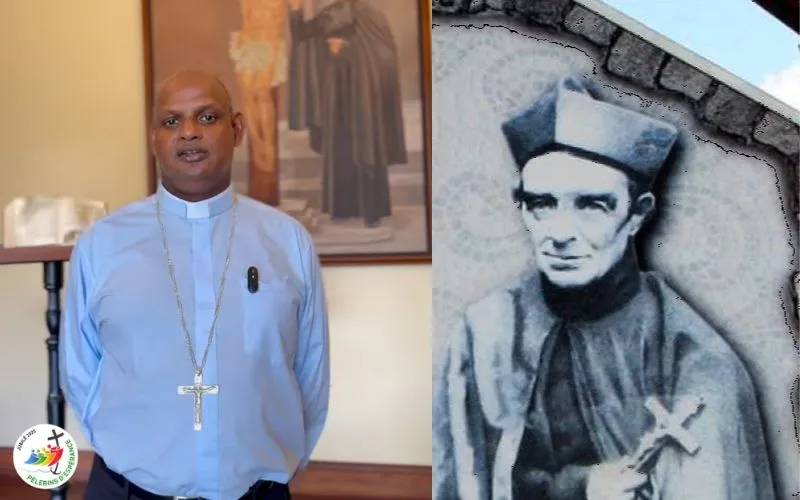“I think so, because the Holy See brokered some of the prisoner exchange situations through embassies,” he said.
“I think it can go well, that is also important. At least the Holy See is willing to do that because it’s right, it’s a just thing and we have to help…
“We have to help,” he added, so that it does not become “a casus belli.”
The pope was asked about his meeting with Orbán and the closure of the Balkan migrant route at Hungary’s border, and whether his meeting with Russian Orthodox Metropolitan Archbishop Hilarion in Budapest on April 29 could open up a path to peace talks with Vladimir Putin.
“I believe that peace is always made by opening channels. Never can peace be made by closure,” he said.
(Story continues below)
The pope said ecumenism is about maintaining relationships. “We have an outstretched hand with everyone, even receiving the hand of God.”
He added that while he has only spoken with Patriarch Kirill of Moscow once, he is “in connection” with him through an Italian bishop who knows the Russian environment well and who comes to brief him on it.
“The relationship with the Russians is mainly with this ambassador [of Russia to the Holy See],” he said, with whom there is a good relationship.
“Everyone is interested in the road to peace,” he continued. “I am willing to do whatever needs to be done. Even now there is a mission going on, but it is not public yet.”
On migration, Pope Francis said Europe needs to tackle the issue, because “there are five countries that suffer the most: Cyprus, Greece, Malta, Italy, Spain.”
“Europe is not taking charge of that, of a fair distribution of migrants,” he said.
Another problem in Europe, he said, are the low birth rates in some of the same countries with a high influx of immigrants, like Italy and Spain. These countries are also seeing many of their young professionals leave for other countries, he pointed out.
Referencing Pope Francis’ gift last year of three fragments of Parthenon sculptures from the Vatican Museums to the Greek Orthodox archbishop of Athens, a journalist asked if he was considering returning to indigenous groups in Canada artifacts taken during colonization.
Francis called to mind the Seventh Commandment and its directive to not steal before calling his decision to give back the Parthenon sculptures “a correct gesture.”
“But there has to be discernment either way,” he added.
He said the Vatican has agreed to return indigenous objects to Canada and that he believes the process is underway.
He also encouraged returning stolen objects. “This is good for everyone. It’s so that you don’t get used to putting your hand in other people’s pockets,” he said.
Hannah Brockhaus is Catholic News Agency's senior Rome correspondent. She grew up in Omaha, Nebraska, and has a degree in English from Truman State University in Missouri.








